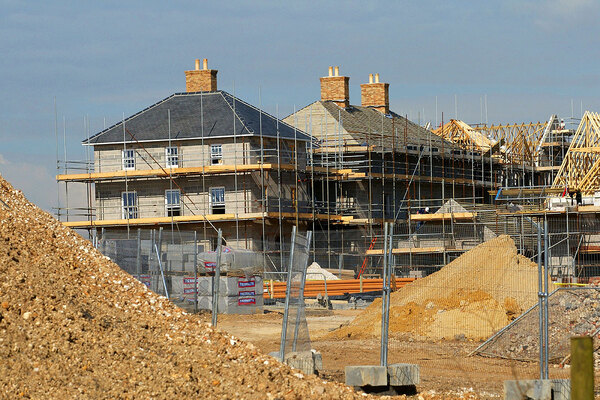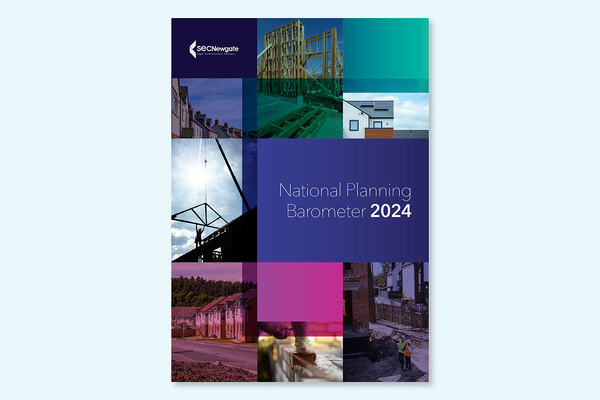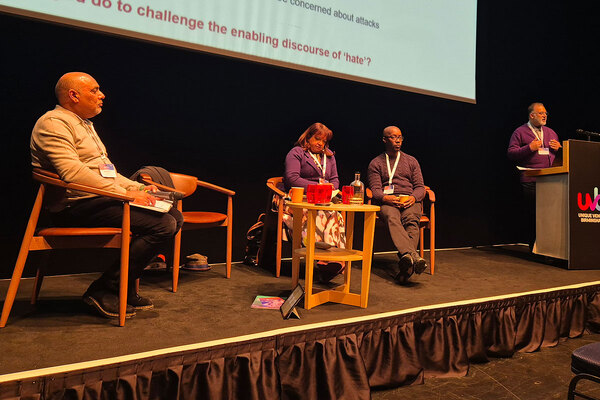You are viewing 1 of your 1 free articles
Crisis in affordable housing – now is the time for real solutions, not more discussion
We need a holistic, multifaceted and co-ordinated approach to change, write Zoe Metcalfe, client director – local and central government UK at AtkinsRéalis, and Jeremy Sweetland, project director at Housing Festival
Everyone knows we have a crisis in social housing. With all forms of homelessness on the rise, we’re breaking records for all the wrong reasons. And yet, there is a huge amount of money being spent on managing homelessness rather than ending it.
In 2022-23, the UK spent £1.4bn on sub-contracting temporary accommodation for low-income families – an increase of 62% in just five years. That is money that needs to be repurposed into funding affordable social housing, which will generate funds rather than drain them.
According to The Economic Impact of Social Housing, a report conducted by the Centre for Economics and Business Research (CEBR), building 90,000 social rent homes would deliver £31.4bn in societal benefits.
But we’re just not angry enough about this situation. The reality, it could be argued, is that the housing emergency is not about a lack of land or money, it’s about a lack of wisdom in how we invest in social structure. That’s why it’s really important that we move from talking about the issue to how we implement solutions.
Developers of social housing are simply not sufficiently incentivised to build quality, low-cost social rent housing at speed. Local councils have neither the funds nor the capacity to shoulder the burden of building at the scale needed.
Our job is to fix this: from funding models to planning departments, we need a holistic, multifaceted and co-ordinated approach to change.
In Bristol, AtkinsRéalis – in partnership with the city council, Housing Festival and social housing provider EDAROTH – our goal was to demonstrate how overcoming fragmentation could enable councils to aggregate small sites for development.
“Our job is to fix this: from funding models to planning departments, we need a holistic, multifaceted and co-ordinated approach to change”
Bristol’s challenges reflect many of the broader issues around the country. While there is plentiful land, particularly in urban environments, it’s trapped in microsites. Former garages, infill spaces, old shopping malls, dead high streets, demolished plots: not only are these ‘unloved spaces’ going to waste, they also harm the health of their neighbourhoods.
While this adds up to a sizeable chunk of land, it must be mapped according to its feasibility for social rent housing. Unfortunately, traditional models invariably fail to find a path to viability for these microsites. This prompts local authorities to either sell the land, often hoping that developers can make better use of it, or leave the land unused.
In Bristol, 2,000 sites are being rapidly assessed to identify an initial development opportunity of 200 to 300 social rent homes through a multi-criteria clustering decision tool. DFMA (or design for manufacture and assembly) and modern methods of construction will be critical; they form an approach that ensures that the majority of the building parts are manufactured in the UK before being assembled on site, reducing the carbon impact of development while simultaneously speeding up delivery and reducing disruption to residents in the vicinity of the sites.
The first demonstrator of clustered new homes by EDAROTH, (a wholly owned subsidiary of AtkinsRéalis) will be delivered to Energy Performance Certificate Band A+, the highest efficiency rating possible, helping Bristol City Council and its people to reduce emissions.
When the margins are too slim for big developers, microsites in brownfields can be made viable by contracting SMEs working with an operating function of profit. Innovative models, combined with the efficiencies of offsite manufacturing, can reduce carbon and minimise disruption caused by development. Forecasting these benefits and factoring them into business cases can help to increase confidence, align incentives and unlock investment.
“The question of who pays still remains, but where there are opportunities, we need to explore them”
The question of who pays still remains, but where there are opportunities, we need to explore them. For example, can we unlock third-party capital from pension funding investment? Pension funds want to invest in social housing; low-risk, low-yield and long-term, it’s a natural fit with their typical investment profile. By leasing newly built social rent housing to pension funds on long-term arrangements, councils can benefit from short-term investment while retaining ownership of the assets in the long term.
The final piece is planning, and the UK’s planning system has proven difficult to reform. Local government has limited capacity, and navigating planning is laborious.
From leveraging local development orders to collaborating with supply chains at an earlier stage, local authorities have a range of tools to move things forward, despite the less-than-ideal planning environment. But local leadership is so important and we must tap into many agents and partners, to create systemic change and ownership, aligning profit motivations under a shared vision.
The fact is we must change the way we deliver – or it will only worsen. Our nation’s health and prosperity must be underpinned by thriving communities, and that can’t happen without quality homes. The idea that we just watch this burning platform evolve and do nothing is not a free pass for any one of us.
Zoe Metcalfe, client director – local and central government UK, AtkinsRéalis; and Jeremy Sweetland, project director, Housing Festival
Sign up for our development and finance newsletter
Already have an account? Click here to manage your newsletters













